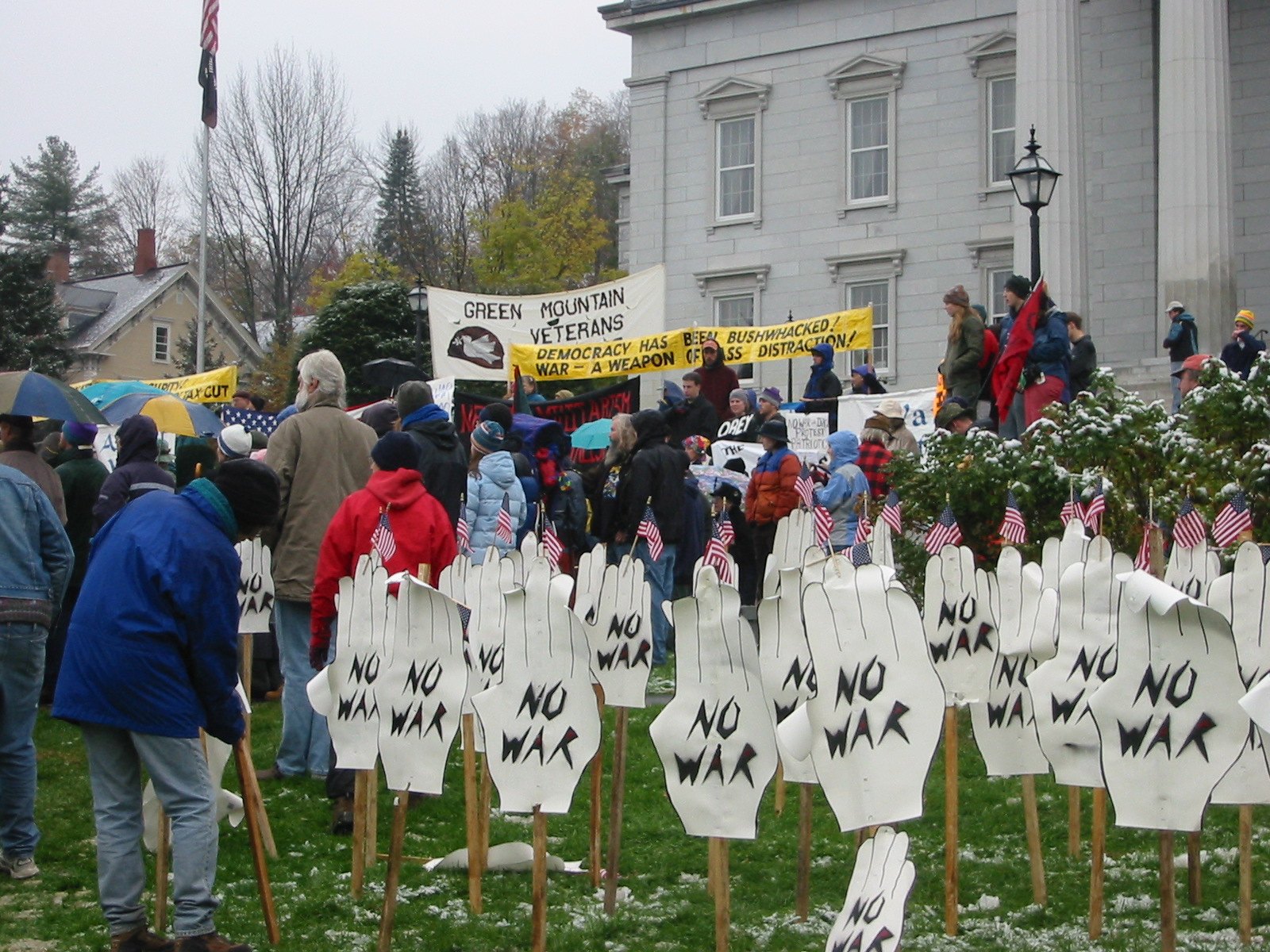
We worked to raise public awareness of why someone might attack the U.S., how war was not the best response for protecting this country and moving Congress to stop supporting and funding the wars.

For me, the morning of Sept. 11, 2001 began at the home of a friend and colleague in Cambridge, Massachusetts. When the planes struck the World Trade Center and the Pentagon we were driving to Concord, New Hampshire for a staff meeting of the New England regional offices of the American Friends Service Committee. We did not have the car radio turned on and so were oblivious to the unfolding tragedy until we arrived. Our animated discussion as we entered the office was cut short when we saw the faces of our colleagues. My first thought on hearing what happened was that there are 50,000 people working in those twin towers and my niece and cousin are among them. Trying to get a call to my family in New York was fruitless; my head spun trying to comprehend the enormity of the catastrophe and the possibility that my loved ones might be among those killed. I had to control my breathing and calm down, my tears would not stop; I realized I could not have been with a better group of people at this moment. We decided to have our meeting, but the planned agenda would be dropped. We knew that there was a great likelihood that the U.S. would soon be at war. We knew that, as staff of an organization operating from the fundamental belief in the dignity and worth of every person, in the power of love to overcome hate, and dedicated to stopping wars and ending the social and economic injustices which lead to war, we would be scuttling our three-year plans to organize resistance to the temptation to strike back and create many more victims. The next eight years of my work life was trying first to stop the U.S. from invading Afghanistan, then trying to get the U.S. from invading Iraq. After that we worked to raise public awareness of why someone might attack the U.S., how war was not the best response for protecting this country and moving Congress to stop supporting and funding the wars. 9/11 was a tragedy on so many levels. Perhaps the deepest and longest lasting was of a spiritual nature. We, as a people, began to see the world as a dangerous place, filled with malevolent intentions toward our country. We lost a sense of the underlying unity of humanity and all life on earth.
Joseph Gainza
